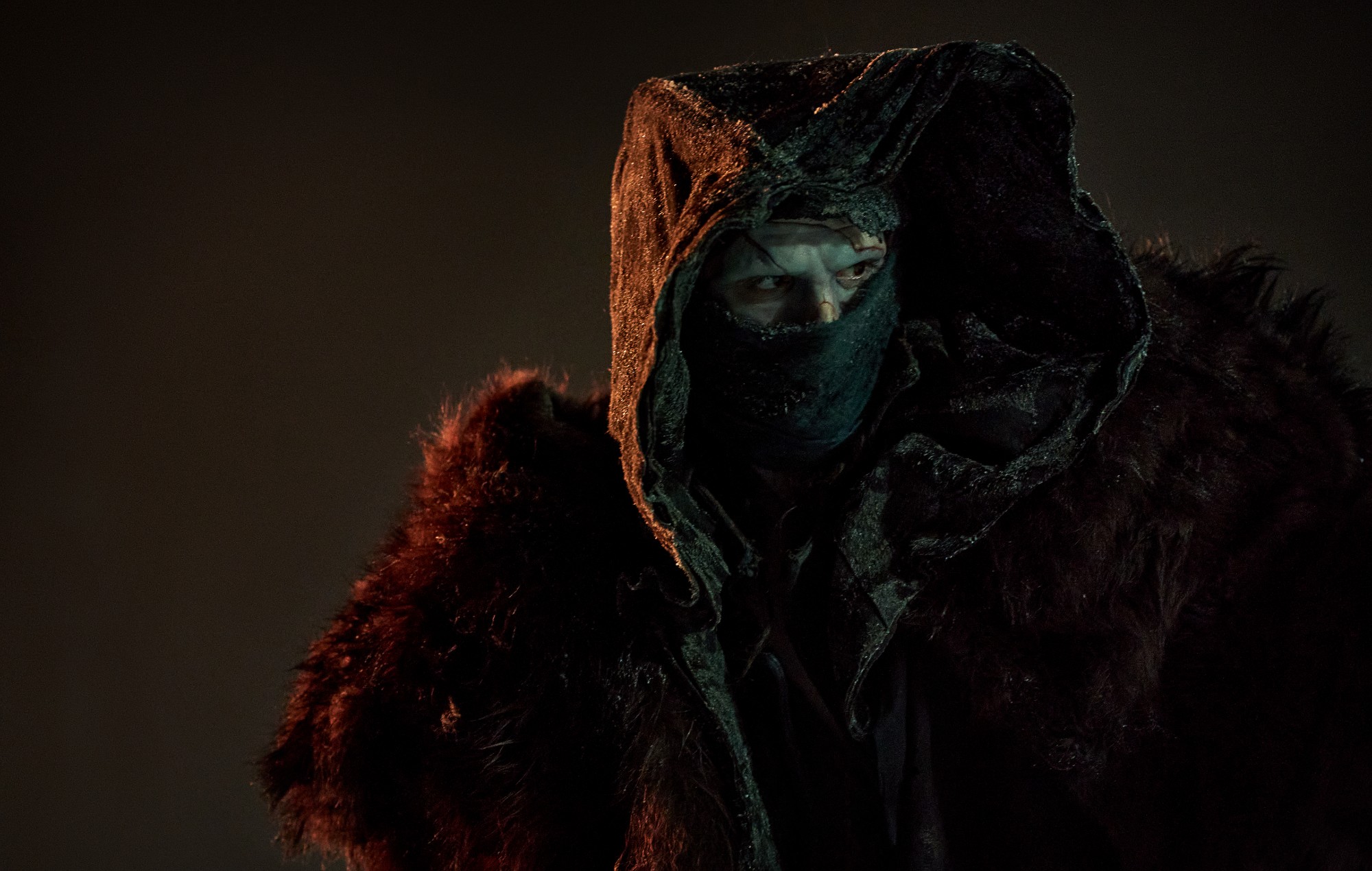
Guillermo Del Toro has built his career on beautifully haunted reimaginings of dark tales, so an adaptation of Mary Shelley’s classic Frankenstein is a match made in goth heaven. Produced for Netflix and sticking closely to the 1818 novel, the end result is an achingly gorgeous film that allows his monster-loving sensibilities and signature style to come to the fore.
This take on Frankenstein begins in the frozen Arctic with Captain Anderson (Lars Mikkelsen) spying a fire in the distance from his ice-trapped ship. One rescue mission later and the badly injured Baron Victor Frankenstein (Oscar Isaac) is brought onboard, only for the entire crew to be attacked by a howling, humanoid Creature (Jacob Elordi). The film is then split into two, as first Victor and then The Creature recount their terrible tale to the Captain.
Victor reveals that to cope with the death of his mother in childbirth and the abuse he endured at the hands of his cold-hearted father (played by Charles Dance), he became obsessed with re-animating the dead. Funded by mysterious, wealthy arms dealer Heinrich Harlander (Christoph Waltz), Victor succeeds in bringing The Creature – made up of stitched-together dead soldiers – to life, but he’s unprepared for the beast’s very human reaction to his newfound existence. Things get even more complicated when his soon-to-be sister-in-law Elizabeth (Mia Goth) forms an attachment to the hulking creature.
Elordi (Saltburn) might seem too pretty an actor to play The Creature but his casting works surprisingly well, and he manages to bring a soulful, tender quality to the role. The make-up is decent and Elordi’s towering height gives The Creature a palpable physicality, but this is still the most handsome a reanimated corpse has ever looked on screen. Del Toro leans into this by putting Elordi in golden underpants for one scene, perhaps as a subtle nod to The Rocky Horror Picture Show.
Isaac is equally good portraying Victor as a moody, tortured artist figure, and the evolving relationship between the pair forms the film’s beating heart. As early scenes with Charles Dance make clear, this is a film about fathers and sons, about creating something in your own image, being horrified by the result and rejecting it. It’s also about the cycle of abuse and is frequently heartbreaking to watch.
As for Mia Goth, already regarded as something of a horror queen in the industry, she proves a perfect fit for Del Toro – here’s hoping they work together again soon. Her take on Elizabeth sparks delightful, combative chemistry with Viktor and brings a different kind of fascination to her relationship with The Creature as Del Toro amps up the tortured romance angle. There’s a strong suggestion that it’s Victor’s jealousy of the monster that drives him to destruction.
On a technical level, Frankenstein is utterly stunning. Del Toro conjures eerie moments that will stay with you long after the credits have rolled, whether it’s a pair of arms bursting up from beneath the ice or Victor’s science experiment suddenly coming to life, giving the film its best jump scare. Tamara Deverell’s meticulously detailed production design looks gorgeous throughout, as are the costumes by Kate Hawley – both are certain to receive awards attention come Oscars season.
Similarly, Dan Laustsen’s cinematography will consistently take your breath away and the film is further heightened by a terrific score from Alexandre Desplat (The Shape Of Water). The only problem is the inclusion of some dodgy CGI wolves that look so janky, they momentarily break the carefully curated illusion.
In short, this is a deliciously dark fairy tale that’s as fantastical as it is emotional. Is Del Toro’s Bride Of Frankenstein too much to hope for?
Details
- Director: Guillermo Del Toro
- Starring: Oscar Isaac, Jacob Elordi, Mia Goth
- Release date: October 17 (in UK cinemas), November 7 (on Netflix). NME watched Frankenstein at the Venice Film Festival
The post ‘Frankenstein’ review: Guillermo Del Toro’s monstrously good gothic spine-tingler appeared first on NME.
